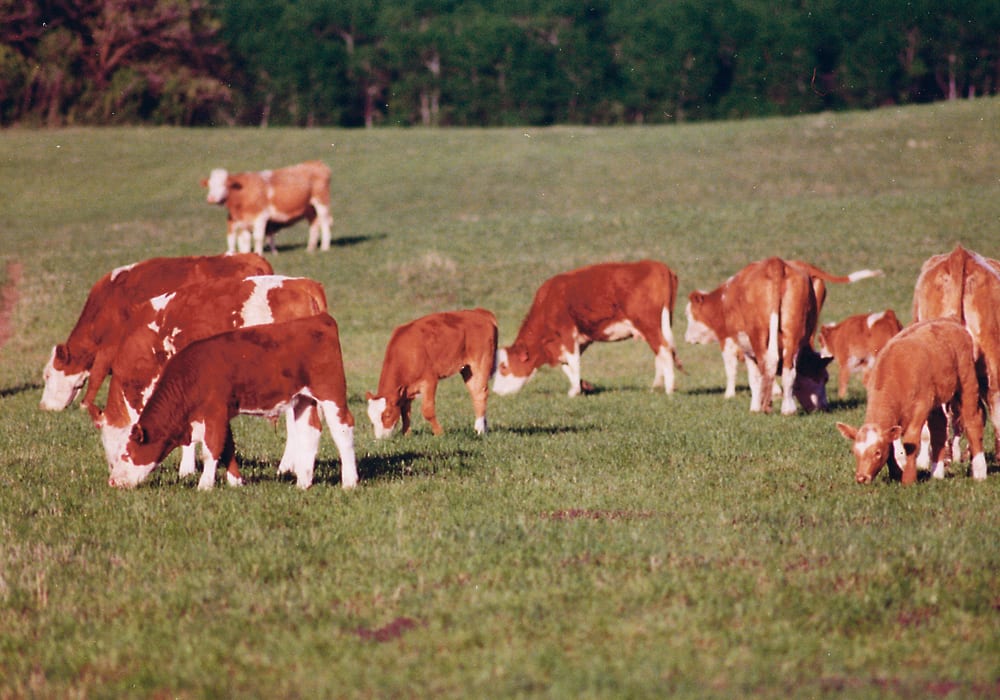Political will for updating the framework wanes as province enters election cycle, says Alberta Beef Producers chair
IRON RIVER, Alta. — Producer organizations pushing to rejig Alberta’s grazing lease framework say it has reached a roadblock, though the issue could regain traction after next year’s provincial election.
Following an Alberta Beef Producers meeting in Iron River in late October, board chair Charlie Christie said the window of opportunity for updating the grazing lease framework has run out. There appears to be no political will from the provincial NDP government to move it forward, he said.
“I don’t think it’s going to go anywhere until after the election, not until one or the other party is comfortable and not in an election cycle, and when they are willing to take up the fight,” he said in an interview.
Read Also

Trump’s tariffs take their toll on U.S. producers
U.S. farmers say Trump’s tariffs have been devastating for growers in that country.
Alberta Beef Producers, as well as the Alberta Grazing Leaseholders Association, Western Stock Growers and the Northern Alberta Grazing Association, have been lobbying the provincial government to change the grazing lease framework.
The group recently met with Environment and Parks Minister Shannon Phillips over the matter. Phillips said more consultation is needed before changes can move forward.
“It’s fair to say we want to get this right,” Phillips said. “There are a lot of grazing leaseholders out there in various parts of the province. What might work in the north doesn’t work in the south.”
Phillips said she asked the group to get more feedback from members to ensure it’s widely supported.
Christie said it already has support from the industry, though it’s possible some producers could be opposed.
“It’s industry driven. It’s not top down. It’s bottom up, and that’s how legislation should be,” he said.
The framework has been under review since 2013. Rates have been frozen since 1994.
Producer groups have proposed the rate be changed to a market-based formula, tying it to the price of cattle.
If the industry is profitable, rates would go up. If not, they would go down, though there would be a minimum rate no matter the circumstances. As well, there would be a five- and 10-year rolling average to smooth out any spikes or dips.
While the new formula would result in an increase of rates, Christie said it might also be necessary to deal with any potential trade disputes. He said it’s possible the U.S. could impose countervail duties because it could appear leaseholders are being subsidized.
“The industry agreed to raise rates and tie them to the price of cattle so that rates could be looked at more fairly and not subsidy driven,” he said.
Christie charged that Phillips isn’t willing to move forward with the changes due to possible attacks from the opposing United Conservative Party. He said she asked the group to get a letter from the UCP that assured the opposition would not politicize the issue.
When asked if that were true, Phillips deflected the question.
She said raising costs to producers is an issue and that ranching economics have changed with increased costs in some areas.
“We need to make sure any rental rate changes track with today’s fiscal realities for farmers.”
Christie said he couldn’t get the assurance letter from the UCP because the party could not support legislation without seeing it first.
“The UCP refused to do that and the NDP refused to take political action on their own,” Christie said.
UCP House Leader Jason Nixon was not available for an interview, but spokesperson Christine Myatt said in an email that the UCP platform is still being developed and there will be more information on its agriculture policy closer to the election.
Going forward, Christie said the organization will continue to push the issue after the election.
“It will put our industry in a better position to defend grazing leaseholders,” he said.
A 2015 auditor general’s report found that while public land in Alberta used for grazing is in good health, the environment and parks department can’t demonstrate that the program is meeting objectives.
The report said current legislation is allowing some leaseholders to reap personal financial benefits. In some cases, financial benefits are over and above the benefits of grazing on public land.
As well, the report said the department hasn’t clearly identified, defined and communicated its objectives for grazing leases. It also hasn’t collected necessary information to analyze and ensure grazing leases are providing benefits to the public.
















